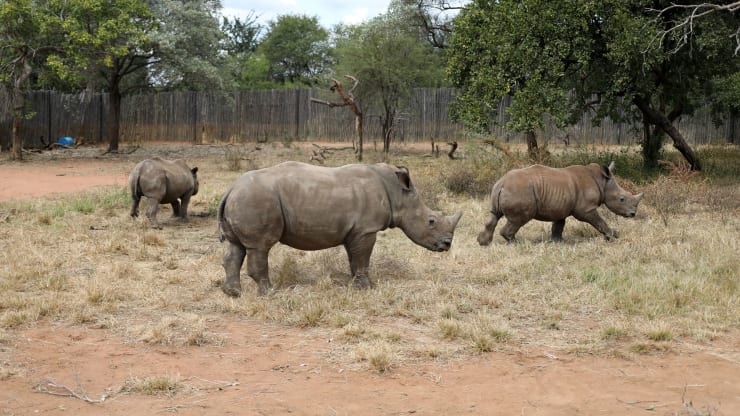Ryan Tate is supposed to be in South Africa right now helping to fight off poachers who hack horns off rhinos and kill elephants for their ivory tusks.
But since the country announced a national lockdown in March to slow the spread of the coronavirus, Tate is stuck in the U.S. He can’t join his team out in South Africa’s wilderness and can’t meet with private donors in the U.S. for his anti-poaching nonprofit organization, which is seeing donations dry up.
“It’s a helpless feeling,” said Tate, a 35-year former Marine and the founder of VetPaw, a group of American military veterans who fight poachers in a remote private reserve in the far north of South Africa.
“Poaching doesn’t stop just because there’s a virus — if anything, it picks up,” he said.
Although poaching is not uncommon in Africa, poachers during the coronavirus pandemic have encroached on land they wouldn’t normally visit and killed rhinos in tourism hot spots now devoid of visitors and safari guides.
In Botswana, at least six rhinos have been poached since the virus shut down tourism. Botswana’s security forces in April shot and killed five suspected poachers in two incidents. In northwest South Africa, at least nine rhinos have been killed since the virus lockdown. All the poaching took place in what were previously tourism areas that were safe for animals to roam.
“It’s a bloody calamity. It’s an absolute crisis,” Map Ives, founder of Rhino Conservation Botswana, a nonprofit organization, said of poaching across the continent.






